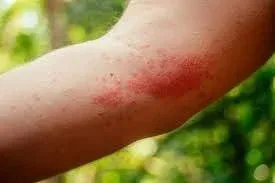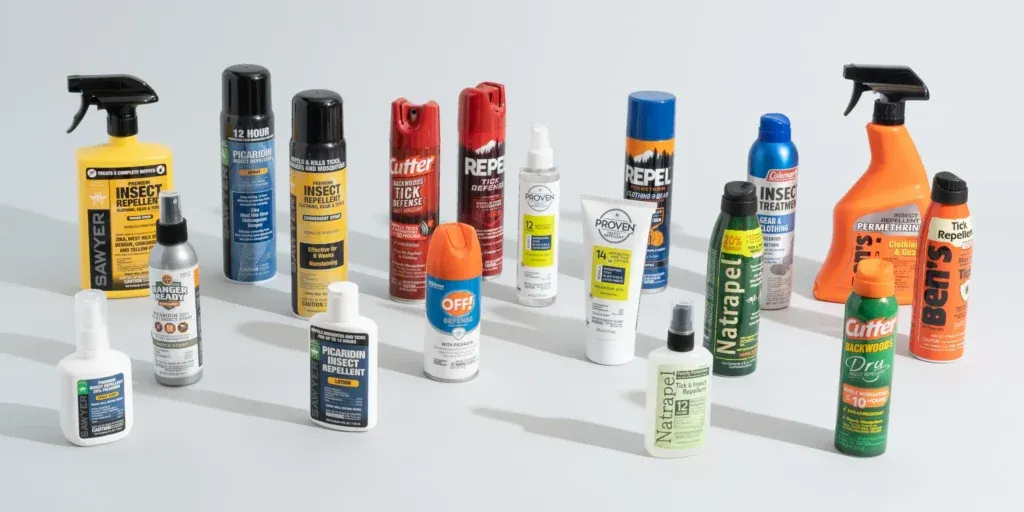| Author | Dr. Alex Thorne |
| Credentials | Board-Certified Entomologist and Clinical Toxicologist |
| Author Bio | Dr. Thorne specializes in venom research and emergency first aid. |
| Medically Reviewed By | Dr. Elara Vance, M.D., F.A.C.E.P. (Board Certified Emergency Medicine) on October 25, 2025. |
| 💡 Quick Answer |
| The only natural, plant-derived active ingredient recommended by the Centers for Disease Control and Prevention (CDC) for proven long-lasting protection against mosquitoes and ticks is Oil of Lemon Eucalyptus (OLE). Products containing OLE (30% concentration) are comparable to low-concentration DEET in efficacy, providing protection for up to 6 hours. Other essential oils, such as Citronella, offer protection but typically only for short periods (30–120 minutes) and are not registered for use against disease-carrying insects. |
Recommended Natural Ingredients (EPA-Registered)
The following Best Natural Insect Repellent ingredient is classified by the Environmental Protection Agency (EPA) as a biopesticide and is the most effective natural option for personal use.
| Ingredient | Active Compound | Duration (Approx.) | Key Safety Note |
| Oil of Lemon Eucalyptus (OLE) | p-Menthane-3,8-diol (PMD) | Up to 6 hours | Do NOT use on children under 3 years old. |
Note on OLE:
OLE is NOT the same as Lemon Eucalyptus Essential Oil. OLE is a refined extract of the leaves of the lemon eucalyptus tree that has been chemically processed to increase the concentration of the active repellent ingredient (PMD). Essential oils are not recommended by the CDC because their safety and efficacy have not been fully tested.

Comparison of Common Natural Alternatives
Many essential oils are marketed as repellents, but they tend to evaporate quickly, limiting their protection time.
| Ingredient | Primary Benefit | Typical Protection Time | Why it’s Not CDC-Recommended |
| Citronella Oil | Pleasant scent; effective against mosquitoes initially. | 30 minutes to 2 hours. | Rapid evaporation drastically limits protection time; not registered against disease vectors. |
| Peppermint Oil | Provides a strong, localized scent; initial high repellency. | Up to 3 hours (variable). | No long-term data; can cause severe skin and eye irritation if used undiluted. |
| Neem Oil | Used as a natural pesticide; shows moderate repellency. | Moderate (effectiveness varies by formulation). | Efficacy is inconsistent; not a primary choice for long-term safety from ticks/mosquitoes. |
| Cedar Oil / Soybean Oil | Soybean oil offers short protection; often used as carrier oils. | Very short (1–2 hours). | Short protection time requires constant reapplication, making it impractical for long use. |
Safe Application and Usage Guidelines
Natural repellents, especially essential oils, require careful use to prevent skin irritation.
1. Dilution is Key (for Unregistered Oils)
If choosing to use essential oils not regulated by the EPA (like Citronella, Peppermint, or Lavender), they must be diluted in a carrier oil (such as coconut, olive, or sunflower oil) before application. Never apply essential oils undiluted to the skin.
2. Follow OLE Age Restrictions
- Children Under 3 Years: Do not use Oil of Lemon Eucalyptus (OLE) or PMD products. Use only netting or clothing for protection.
- Application: Always apply the product to your own hands first, then rub it onto the child’s exposed skin. Avoid the eyes, mouth, and hands.
3. Be Realistic About Duration
Natural repellents generally have a shorter Complete Protection Time (CPT) than synthetics. Reapply frequently (every 1–2 hours for most oils; every 4–6 hours for OLE) to maintain a protective barrier.
4. When to Choose a Synthetic
If you are traveling to an area with a high risk of mosquito-borne illness (such as Zika or West Nile virus) or are in a dense tick area, EPA-registered synthetic repellents like DEET (20-30%) or Picaridin (20%) offer the most reliable and longest-lasting protection.
Final Thoughts
When it comes to insect protection, going natural doesn’t mean compromising effectiveness. The best natural insect repellent combines essential oils that keep bugs at bay while nourishing your skin and protecting the planet. Whether you buy a trusted brand or make your own, consistent application is key to staying bite-free.
For families, hikers, and eco-conscious users, natural repellents offer a perfect balance between safety and performance—so you can enjoy the outdoors worry-free.
FAQs About the Best Natural Insect Repellent
1. Do natural insect repellents really work?
Yes, natural repellents with ingredients like lemon eucalyptus oil or citronella can be highly effective for several hours.
2. Are natural insect repellents safe for children?
Most are safe for children over three years old, but always check the label and avoid certain oils like peppermint on very young skin.
3. How often should I reapply natural repellent?
Usually every 2–3 hours, or more often if you’re sweating or swimming.
4. Can natural insect repellents prevent tick bites?
Some can help deter ticks, especially those with cedarwood or tea tree oil, but for heavy tick areas, stronger formulas may be needed.
5. Do natural repellents expire?
Yes, most essential oil-based repellents lose potency after 1–2 years. Check expiration dates before use.





